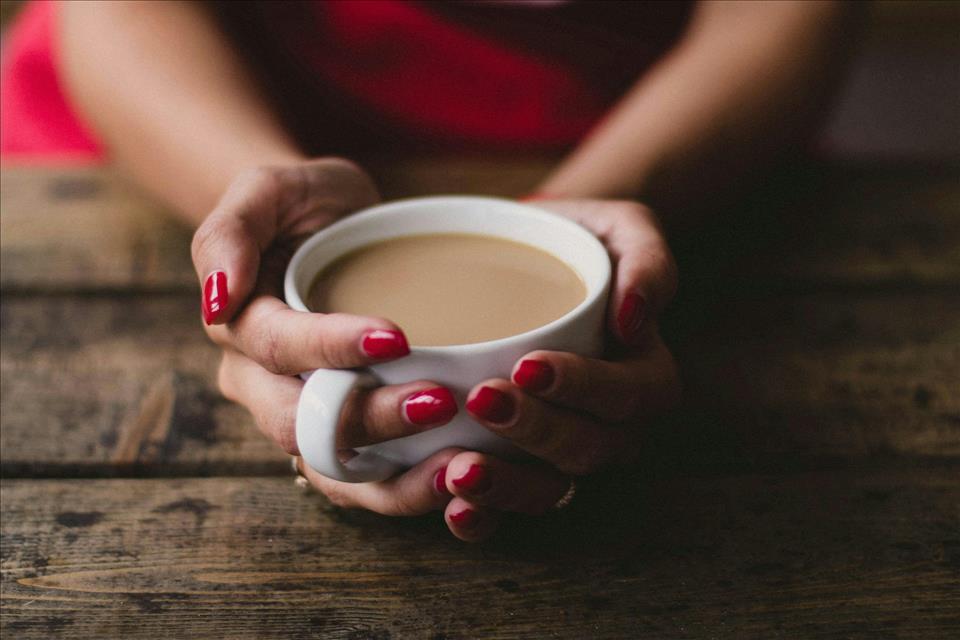
Could Cutting Back On Caffeine Really Give You More Vivid Dreams? Here's What The Science Says
While there are a number of potential benefits of reducing our caffeine intake – such as whiter teeth and fewer trips to the toilet – we often hear one downside of cutting back on caffeine is the emergence of vivid (and sometimes scary) dreams.
It's a strange and specific effect that many people say kicks in within days of reducing caffeine intake.
But is there actually any science behind this? Let's look at what the research can tell us.
How caffeine affects sleepCaffeine is a stimulant that makes us feel alert and awake. It works by blocking a chemical in our brain called adenosine .
Adenosine usually builds up during the day while we're awake and active. By the evening, the build-up of adenosine in our brains helps us to feel sleepy. Adenosine gets cleared away while we sleep and we wake ideally feeling refreshed, ready for the adenosine to build up again.
When we have caffeine, it blocks adenosine's signal. So, while the adenosine is still there, we don't feel the sleepiness as strongly. When the caffeine wears off, our urge to sleep increases (the caffeine crash).
Caffeine has a half-life of around three to six hours, meaning half the caffeine we consume is still in our body after this time and, importantly, still affecting adenosine. That's why, for many people, having caffeine in the afternoon or evening can make it harder to fall asleep at night.
By interfering with our adenosine signalling, caffeine can also make our sleep more disrupted and reduce the overall amount of sleep we get. This is especially true for our deep, restorative non-rapid eye movement (NREM) sleep . Overall, the research clearly shows the later we have caffeine and the more we have, the worse it is for our sleep.
There's not a lot of direct research on whether cutting down on caffeine makes our dreams more vivid. Most studies focus on how caffeine affects sleep rather than what happens in our dreams.
But that doesn't mean we're totally in the dark. We know sleep quality and dreaming are closely linked .
So why might less caffeine = more vivid dreams?Even though there's no direct proof, people keep saying the same thing: they cut back on caffeine and within a few nights, their dreams start feeling more vivid , detailed, or just plain weird.
While cutting back on caffeine will not directly cause vivid dreams, there is a plausible link. Since caffeine can reduce total sleep and increase night-time wake-ups, especially when consumed later in the day, cutting back can let our body“rebound”. When we get more sleep, this can increase the amount of rapid eye movement (REM) sleep we get.
REM is a phase of sleep when our body is relaxed but our brain is very active. It's also the stage of sleep associated with dreams . More REM sleep can mean more opportunity for our brain to produce vivid and elaborate dreams .
REM sleep is also the stage of sleep we are most likely to wake up from during the night, and if we wake up from REM sleep we are likely to remember our dreams , because they are“fresh” in our memory.
So, cutting back on caffeine can mean we get more REM sleep, which means more opportunity to dream and more opportunity to remember our dreams.
Of course, sleep is complex and so are dreams. Not everyone will suddenly have vivid dreams after ditching caffeine, and the effect might only last for a few days or weeks.
The bottom line is there's not a lot of hard evidence linking cutting back on caffeine to vivid dreams, but there could be an association. Caffeine affects our sleep. Sleep affects our dreaming. And when we take caffeine out of the equation, or reduce it, this might give our brain a chance to spend more time in REM sleep.
It's all in the timingWhen we think of caffeine, we commonly think of coffee and energy drinks. But caffeine can also be found in certain fizzy drinks, chocolate, tea, pre-workout supplements and medications.
Caffeine has a number of benefits , including for cognitive function and mental health. For example, some studies have shown coffee drinkers have a lower risk of depression , while caffeine has been associated with a reduced risk of neurodegenerative diseases such as Parkinson's disease . Coffee also contains B vitamins and antioxidants which are essential components of a healthy diet.
For shiftworkers , particularly those working at night, caffeine is often a way to manage fatigue . And even those of us who don't do shift work may not be able to get stuck into the day's tasks without that first (or second) cup of coffee.
If you're not keen to cut out caffeine completely, but want to optimise your sleep, it's all in the timing. Try avoiding caffeine for at least eight hours before bedtime, and steer clear of big doses within 12 hours of bedtime . Your sleep may thank you and your dreams may just surprise you.

Legal Disclaimer:
MENAFN provides the
information “as is” without warranty of any kind. We do not accept
any responsibility or liability for the accuracy, content, images,
videos, licenses, completeness, legality, or reliability of the information
contained in this article. If you have any complaints or copyright
issues related to this article, kindly contact the provider above.


















Comments
No comment